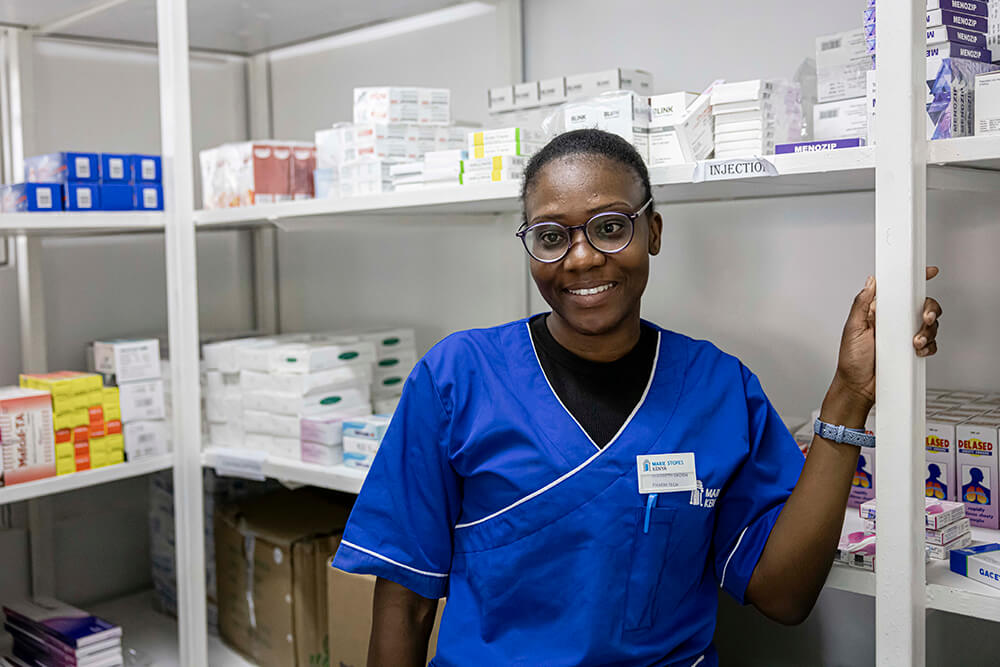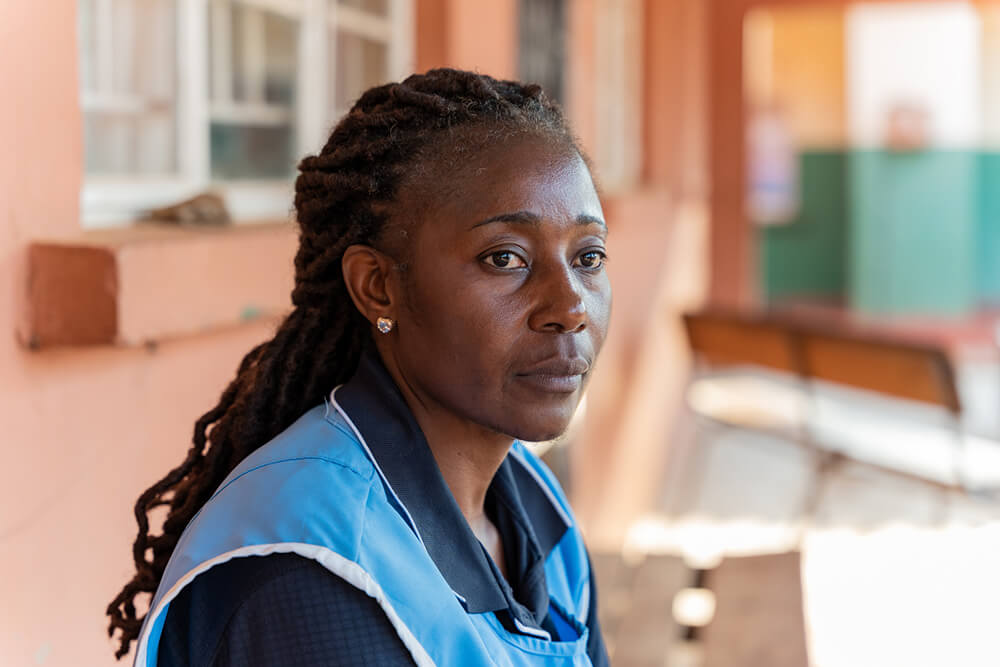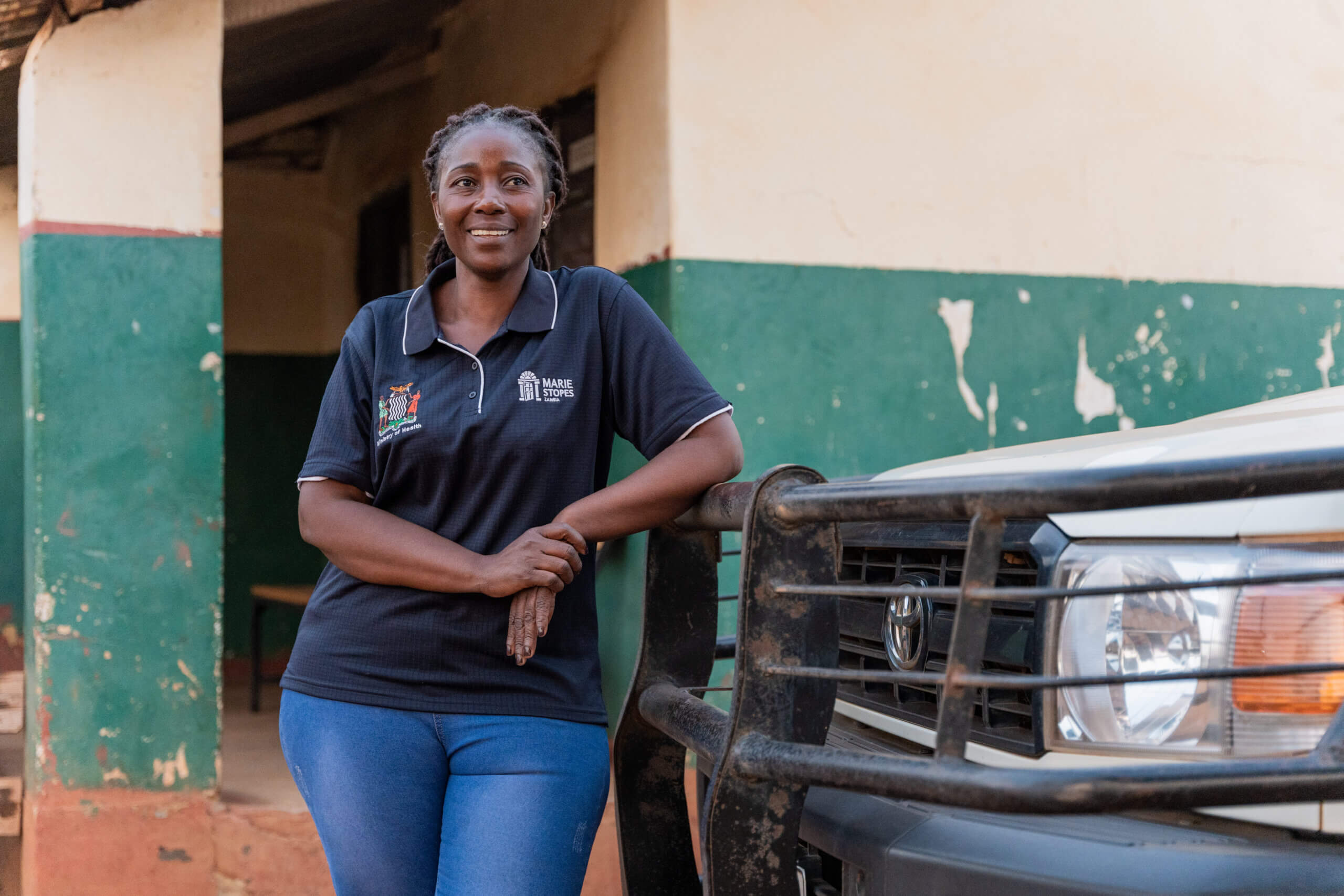A day in the life of a teen connector
By Kate Schaffer, Director of New Philanthropic Partnerships
Worldwide, 14 million adolescents want to avoid pregnancy but aren’t using a modern method of contraception. It’s a staggering number, one that reflects a clear gap in healthcare tailored to the unique needs of young people. To help close that gap, we need to provide information and services that empower adolescents to make their own choices, continue their education, and pursue their dreams for the future. In Zambia, MSI has been leading the way with programs specifically targeting adolescents, and the results are inspiring.
A key part of the success of these programs are young women called teen connectors. They’re trained to talk to other young people about sexual and reproductive health. These smart fearless peer counselors provide accurate, judgement-free information, connecting their fellow young people to the services they need in ways that are convenient and approachable.
I spent a day with a teen connector named Mareta, in Lusaka, Zambia. Her busy day highlighted just how much the teen connectors contribute to MSI’s efforts to support young women with comprehensive services that meet their needs.
Morning at the Diva Center
Mareta started her day at the Diva Center, an adolescent-only health center in Lusaka. The brightly colored walls and cheerful cartoon sign out front invited girls into a safe space run by a knowledgeable nurse and a team of teen connectors.
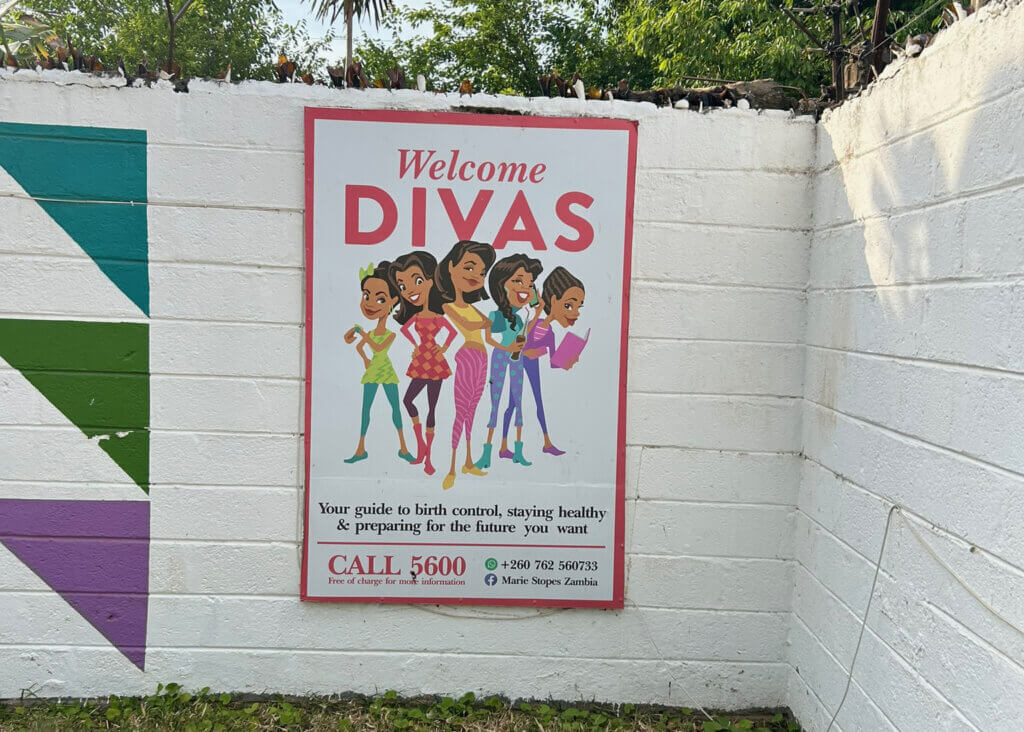
“Everything I know now, I learned from the Diva Centre,” Mareta told us. “The space has empowered me to be a role model connecting fellow adolescents to quality reproductive health information and services. The center provides a safe space for many adolescent girls who trust us with their reproductive health choices making a positive impact on their lifestyle and future decisions.”
When a teen walks in the door, she’s greeted by a teen connector. The connector is ready to answer any questions she might have about her reproductive health—whether that’s sexually transmitted infections, contraception, or personal hygiene. This morning, Mareta demonstrated to a visiting girl how to make her own washable menstrual pads. Many girls miss school when they are menstruating because they don’t have appropriate supplies and are worried about leaking through their clothes. By providing reusable pads and demonstrating how girls can use materials they already have at home to protect themselves, teen connectors help to build comfort and confidence, and encourage girls to continue going to school, even during their period.
The Diva Center nurse is available to provide contraceptives on-site for any girls ready to make a decision about a contraceptive method. The methods available are illustrated with the “Divine Divas” – characters personifying the benefits of each method. If a girl walks through the door seeking abortion care, she receives information and counseling. Then, she’s accompanied to the family health center elsewhere in the same compound, where she can get confidential care without a long wait.

Originally, the MSI team imagined a network of permanent clinics serving adolescents. But they found that stand-alone clinics weren’t reaching the young people who are most under-served, such as those living in rural areas and those with disabilities. So, the Diva team innovated and created a mobile Diva Caravan to bring services directly into communities. After a morning at the Diva Center, teen connector Mareta hit the road to join MSI’s’s Diva Caravan.
On the road with the Diva Caravan
The Diva Caravan is a “youth space on wheels.” It has a counseling space and procedure room built into a caravan that can be brought to different neighborhoods to reach adolescents wherever they are. This afternoon, its destination was George Compound, one of Lusaka’s poorest neighborhoods. Festive music and dancers drew passing crowds to learn more about the services available. Teens could blend in with the large crowd without drawing attention to their use of services, which maintains their privacy.
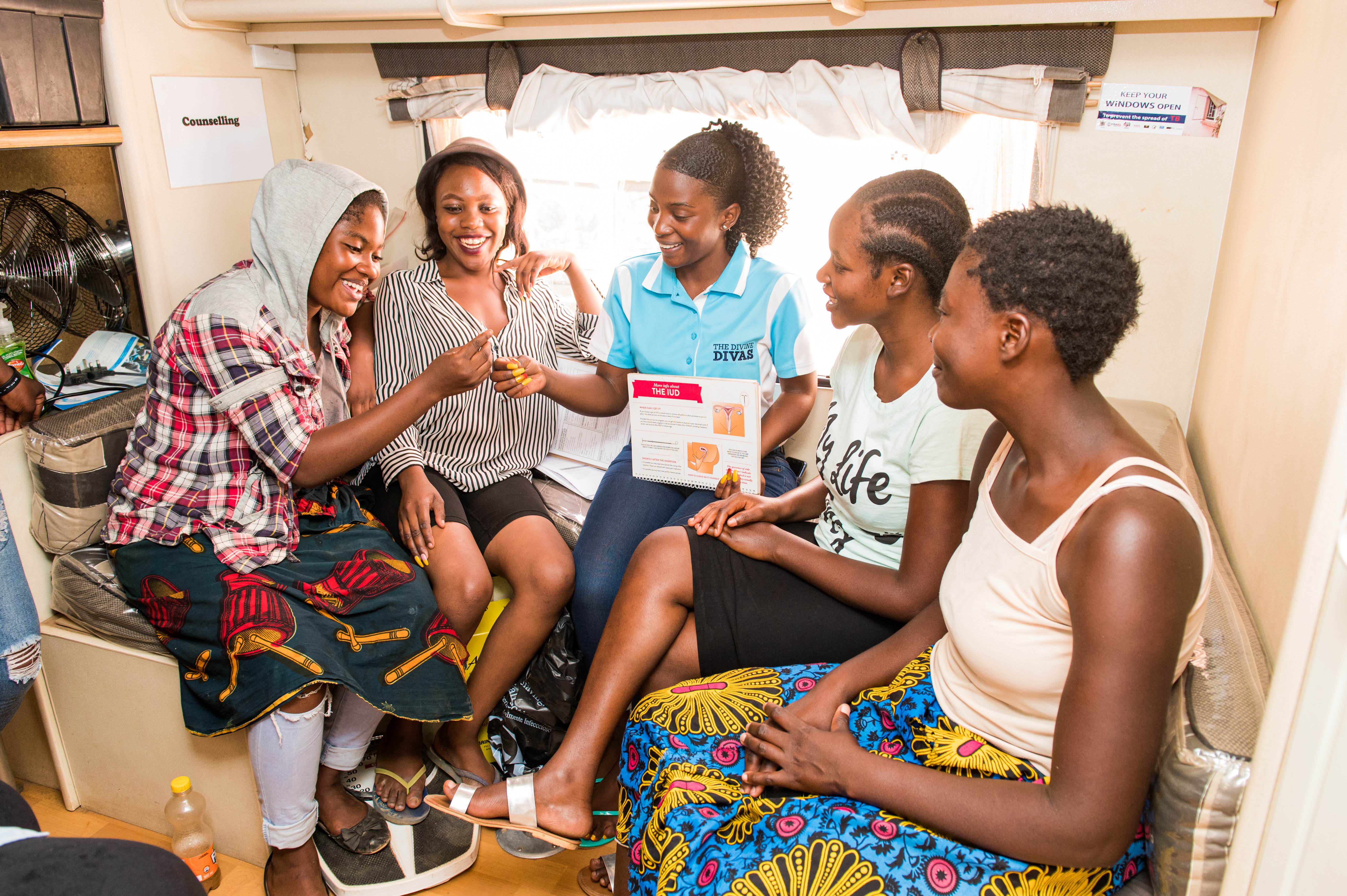
In the caravan itself, a busy team bustled around the small space. A government healthcare provider, trained by MSI, was providing short- and long-acting contraceptive methods, including IUDs and implants. In the front, a nurse offered counseling on the methods available. A sign language interpreter was on hand for people who needed it. And outside, teen connector Mareta confidently addressed the growing crowd, answering questions and providing information about menstrual hygiene.
It was a hot day, and the fan hanging from the ceiling struggled to keep up with the heat while a young mother came in to talk about her contraceptive options. She’d had a baby as a teen, and she was eager to avoid future pregnancies while she established a more secure footing for her young family. With the help of the nurse on staff, she chose to receive an IUD, which would protect her from unintended pregnancies for years to come and give her time to plan for her future.
Reaching adolescents one event at a time
At the end of a long day, the team eagerly awaited news of the day’s results. The text message came with the numbers. Ninety adolescents and young women reached in just one day, including people with disabilities, who might otherwise have struggled to get the healthcare they needed.
Christabel, Technical Advisor for Youth, Disability and Gender for MSI in Zambia, told us why this work is so essential. “Zambia’s 2024 Demographic and Health Survey Key Indicators Report shows that the country’s adolescent teenage pregnancy rate stands at 28% of our total adolescent country population. So, when we provide contraception and support at our Diva Center and Caravan, or through outreach services in rural and urban communities, our adolescent programming makes contraception more easily available, empowering them to make decisions that impact their daily lives and futures.”
For these women and girls, the effects are life-changing. “Whether they are delaying their first pregnancy or have had a child before and want to delay their second pregnancy and go back to school to finish their education, it is not just contraception that our adolescent program provides, but support and a lifesaving experience that helps them prepare and plan for their future.”
For Mareta, it’s all in a day’s work. Tomorrow, she’ll be back to educating girls in her community, giving them the information they need to take control of their futures.



